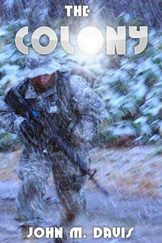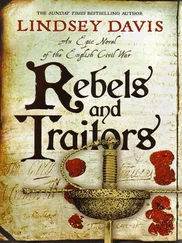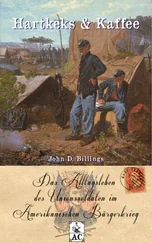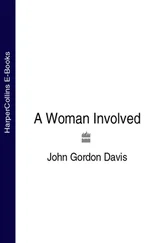1 ...7 8 9 11 12 13 ...26 ‘May I sit down a moment?’
‘Certainly, but I’m off to play squash in a few minutes.’ Harker sat, and she continued hastily, for something to say: ‘And what are you doing in New York, Mr Harker? You’re not American, with that accent.’
‘No, I’m a sort of British–South African mongrel.’
‘I see.’
He wondered whether she thought she saw a racist. ‘I run a publishing firm here, Harvest House. We’re fairly new in town but we’re keen. And that’s another reason I’ve introduced myself, apart from the pleasure of meeting you – I wondered whether you’ve considered writing a book?’
He felt he saw the light in her eyes.
‘As a matter of fact,’ she said, ‘I’m busy writing one right now. About South Africa, in fact.’
‘ Well ,’ Harker said, ‘would you consider having lunch with me one day to discuss it? Or dinner?’
‘That would be lovely.’
He felt a shit but he was a publisher. And war requires espionage. Personally, he felt as pleased as she was. As he watched her walk away to her squash date he thought: what a lovely girl, what lovely legs …
‘Never conceal,’ the Chairman had said, ‘that you were in the South African army. People like Clements and Spicer can do that but you’ll be too high-profile to get away with a lie like that – you may fool people for a while but sooner or later somebody who knows you will blow into town and people will wonder why you concealed the truth. So tell ’em upfront: you were a professional officer fighting an honourable war against communism. Rub in Sandhurst, the sword of honour, all that good stuff. But disown apartheid, make all the usual noises against it – these people love to hear others singing their song …’
But it wasn’t that easy when Harker met Josephine Valentine the next Saturday for lunch at the Tavern on the Green. She came striding into the restaurant, ravishingly beautiful, her long blonde hair flowing, wreathed in smiles for her potential publisher, the file containing her typescript under her arm. He had intended telling her that they had met at the Battle of Bassinga only if the conversation and atmosphere between them warranted it: within minutes of the small-talk beginning he saw a look enter her eyes, a glint of challenge when he mentioned his military background, and he decided against it. She listened with close attention as he sketched in his personal history, fiddling with the cutlery. Then she politely took up the cudgel.
An honourable war? Yes, she understood how a career officer had to do his duty to the state, even if he didn’t personally approve of all its policies. And she understood how most people might consider the communists to be dangerous people, she could understand that honourable soldiers would feel justified in fighting them to their last breath – one took up a military career to defend one’s country and that would necessarily involve killing as many of the perceived enemy as possible. But in the case of South Africa, the communist ‘enemy’ – she made quotation marks with her fingers – was also fighting for the liberation of South Africa from the apartheid yoke, helping the ANC in their armed struggle. This surely made the Cubans the honourable soldiers, because apartheid – ‘on your own admission, Mr Harker’ – is evil, and the intelligent, honourable South African army officer must surely have seen this paradox and been in a quandary, not so? He was indirectly – indeed directly, surely? – fighting for the evil of apartheid? So how this officer could have justified his actions, if only to himself, profoundly puzzled her. A moral dilemma, no?
‘Did you come up against this quandary in yourself, Mr Harker? Or in any of your brother officers?’
‘Please call me Jack.’ Harker could see his potential relationship with this lovely woman going out of the window. He didn’t give a damn about the CCB’s loss, it was his own. He said, truthfully, ‘Oh yes. We didn’t talk about it much in the officers’ mess but I and a good few others had considerable qualms. But I considered myself to be fighting the greater evil of communism only, the important thing was to defeat the enemy, drive him into the sea, and then let the politicians unscramble the mess of apartheid.’
She smiled sweetly. ‘And if the politicians had not unscrambled the mess of apartheid, what would you have done? Would you have quit the army?’
‘I quit anyway. The politicians still haven’t unscrambled apartheid, but here I am.’
‘But you were wounded.’
‘But not killed. I could have stayed in the army in a non-combatant role.’
She looked at him calculatingly, smiling. ‘Okay, but when you went into battle did you really feel that you were only fighting against communism?’
Harker smiled. ‘Yes.’ That was more or less true.
‘But in the heat of battle too?’
He didn’t think it would be helpful to explain that in the heat of the battle all you felt was terrified hatred for the bastards trying to kill you. Like the saying ‘There are no atheists in a fox-hole’, there are few starry-eyed liberals on an African battlefield. But he didn’t want an argument with this beautiful woman, he wanted to have a nice lunch while Clements burgled her apartment again and then, if at all possible, he wanted to get laid. If not today then some time. Soon. ‘Yes, in battle too. Shall we order?’
She gave him a dazzling smile. ‘A bit later perhaps; I’m enjoying this conversation, I’ll bring it into my book.’
Harker smiled. The Chairman would love that. ‘So tell me about your book. May I?’ He indicated the folder containing her typescript.
She placed her hand protectively on it. ‘Please, not yet.’ She gave him another dazzling smile. ‘I’ve only written about ten chapters so far, anyway. I thought I was ready to show them to you but now I know I’m not. You’ve given me some new ideas.’ She grinned, then hunched forward earnestly. ‘So tell me, what’s going to happen in South Africa?’
This was the opening he was waiting for, the reason why Clements was burgling her apartment at this moment. He turned the question around: ‘What do you think is going to happen?’ He particularized: ‘In Angola?’
‘I asked first.’
He decided to give his honest opinion rather than the propagandist one.
‘The war will go on for some time. But communism is on the ropes. Russia is in big economic trouble. Cuba is Russia’s cat’s-paw and Russia cannot afford to support them much longer. Angola is Russia’s Vietnam. However, nor can South Africa afford it much longer, though we’re in better shape than Russia and Cuba. So even if we don’t achieve a knockout blow now and drive the Cubans back home – which we could do militarily – Russia’s poverty will eventually do the job for us. So I think South Africa will finally win the war.’ He added, in the hopes of drawing her out, ‘I don’t think the South Africans will ever quit, no matter what economic hardships they encounter. And I think Castro realizes this and he’ll soon start looking for a face-saving way to make a peace deal.’ He added, ‘Don’t you?’
Josephine was not to be drawn. She had her hands clasped under her chin, her eyes attentive. ‘And what’s going to happen to apartheid?’
Harker took a sip of wine. ‘Meanwhile apartheid is on the ropes too. It is a proven failure. Cruel, and economically unjust – and economically wasteful. So there will be reform – already the state president has warned his Volk that they must “adapt or die”, and a lot of apartheid’s petty laws are not being enforced. So after the communist threat is removed, I expect apartheid will be eroded until there is none of it left. There’ll be resistance to the process, of course, diehards threatening civil war, but my guess is that by the turn of the century apartheid will be well and truly dead and we can get on with reforming ourselves our way.’
Читать дальше












